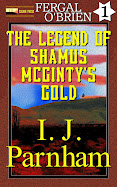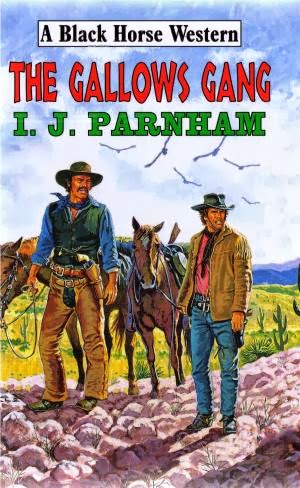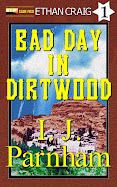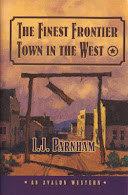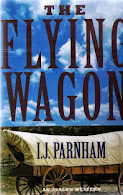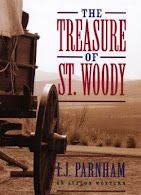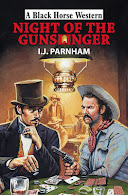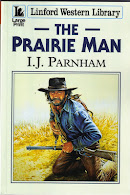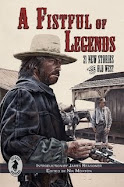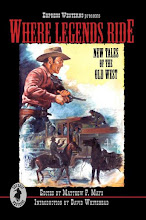This review will be about the 5,439th posted on the Net in the last two months of the most eagerly-awaited fantasy novel in recent memory,
A Dance with Dragons by George R. R. Martin (Book 5 of
A Song of Ice and Fire). I hate writing negative reviews and this one won’t say anything different to what 99% of reviewers are saying but, as I've been waiting ten years for this book, I feel an urge to add my ten cents' worth. I'll include mild spoilers although, if you've read the book, you'll know it's easy not to give much away in a review.

In short this novel isn't quite the worst I've ever read, but it is the most disappointing. Fifteen years ago, when I started
Ice and Fire, disappointment was furthest from my mind. Martin appeared to be a rare author who would avoid the pitfall that often ruins fantasy of the endless series syndrome, in which trilogies become 4 volumes, become 5, 10, 20 volume epics. More quests are attempted, more parts of the map are visited, more characters are added, more sub-plots are woven in, more description is used until the story grinds to a halt.
A Game of Thrones stomped all over that attitude. Here was the first book in a projected 4-volume epic whose story was big enough to fill four volumes. It was epic fantasy without the dull bits, a high-adrenaline romp through a version of medieval history. It featured charismatic bad guys, flawed good guys and a story in which it was anyone's guess where it'd go and who would survive to the end. This was fantasy for adults, not just because of its adult content, but because it had a character based plot. Before Martin, most epic fantasy used the Tolkien model of the plot-based story in which everyone chases around a map for no good reason other than that the story says they should. But
Thrones let the characters drive the story. People weren't just good or bad, they were shades of grey, like real people. Greed, lust, envy and worst of all love could motivate people to destroy a kingdom. It was compelling stuff and it's no surprise that this year's tv version was popular. I never watch filmed versions of novels I like, but I can imagine how good it was. I can also imagine that this book will annoy old and new fans so much that the tv version will ignore it and restart the story at book 6.
The warning signals first appeared in books two and three when the number of characters grew, but they didn't raise concern as the narrative was so much fun. Every time you started to see where the story was going, main characters got slaughtered and the story veered off in another direction. By the end of book three we'd reached only the end of act one of the three act main narrative as the Ice and Fire elements were only then becoming relevant. So even the inevitable news that the series was to be a five, six and then seven volume series was well-received.
Book four started the story's second act and, as often happens in middle sections, the plot stalled. Sticking your hero up a tree in act one is often easy and getting him out of the tree in act three is also often easy. But the middle bit is where you throw rocks at him, and making that interesting can be tricky. The solution chosen in this case was to slow the narrative down to the speed you'd expect from an asthmatic ant carrying a large bucket of swill up a steep hill. To add further strangeness, the story ignored the main characters and detailed the lives of the bit-part characters. And then it added in new characters who lived in ignored parts of the kingdom. Then it sent them off on long and uneventful journeys to irrelevant parts of the map to do uninteresting things.
As an exercise in risk taking and not giving readers what they expect book four should be applauded, but few readers welcomed the change of pace. It was like waiting ten years for a new Star Trek tv series and then instead of it being set on the bridge of the Enterprise, it's set in Starfleet's admin department. And it relates the adventures of a group of filing clerks in their mission to discover filing systems that are not as we know them, seek out new income and expenditure spreadsheets, and boldly track down missing paper clips that nobody has ever missed before. And then when you try it, you find it's even duller than you expected. That was book four. Book five is worse.

First, here's the spoiler that all the reviews say: I can't spoil the story in
A Dance with Dragons because there isn't one. This book has no reason to exist beyond the fact that it'll sell. Like with the previous books, it's character based, but unlike with the first three in which the characters drove the plot, this book is just about characters. And they do nothing other than observe passively while thinking about how great it'd be if someone were to film what they can see and make miniature collectibles out of everyone they meet and computer games out of the scenery they pass. Which would be bad enough, except the characters act differently than the way they've acted before. Jon is Up North worrying about the ice zombies beyond the wall, but he does nothing about it. Dany is Down South ignoring her dragons while she tries to get into a slimy new character's pants. And Tyrion is going from Up North to Down South while worrying about what he did in book three, a lot.
Worse, the bold moments that filled the narrative before have been replaced with nervous cop-outs that feel as if the writer was giving himself an easy ride. I won’t spell them out, but whenever something decisive is close to happening, it fizzles away. Characters get killed, but then we find out they're still alive. Characters get clapped in irons, but their captors release them. Characters act brutally, but they were only acting. Characters face a problem, but they ignore it. If the early books had been written in this style, then with a single bound Eddard would have avoided the chopping block, the Red Wedding would have ended with a jolly sing-song, and Tyrion would have invented the Heimlich manoeuvre at Joffrey's wedding. Most annoyingly for me, it's likely that all the insoluble problems will be resolved with magic. Previously I had loved reading about a fantasy world without boy wizards and swords of power and ancient races of elven lords. But all those unreal solutions are slipping into the story to stop anyone having to make tough decisions. Admittedly there's a few compelling sections such as the return of the bit-part, in all ways, Theon, who went missing presumed chopped to bits 3,000 pages ago. But a handful of mildly interesting events isn't good enough in a book that's pushing half a million words, or as I kept thinking while forcing myself to read on, fifteen Black Horse Westerns.
I should say something positive as I wanted to enjoy this book and I tried to accept the story on its own terms. The best I can manage is that Martin can still write a well-constructed chapter. They all start with an arresting image, then they fill you in on the back story, develop with introspection and dialogue, and end on a cliff-hanger. But sadly, they have no tension. Suspense was one of the many things that made A
Game of Thrones unmissable. A typical Tyrion chapter would start with the dwarf about to have his head chopped off. He'd talk his way out of that only to be thrown in a dungeon without food or water where he'd be offered a way out, but only if he completes an impossible task in which he's sure to be killed. And so it'd go on with everyone always in danger and with the suspense unbearable because anyone can get the chop.
In
A Dance with Dragons a typical chapter starts with Jon worrying that the stores are running low on toilet paper. He meets the storeman who gives him an inventory of every item in the store, and the chapter ends with the cliff-hanging revelation that they might get short of sausages in three years. I accept that the novel is providing introspective angst and descriptive world-building instead of mounting up problems for the main characters with swordfights aplenty. But the ennui and the lack of anything that I reckon most readers find entertaining highlights the annoying writing style that didn’t matter before when the story was compelling in which 20 words (and often 200) are used when 10 would do, and when 10 would be more effective. For example, I longed for someone to just once have a sumptuous feast or a frugal meal rather than having to read about every item in every course of every meal. If the characters ate off-screen instead of breaking their fast every chapter, this book would be about 50 pages shorter.

I could say more to make the pain in my arms seem worthwhile after supporting this monster for so long while hoping it'd lead somewhere, but I'll give up. I still hope that the author or an editor or a tv producer accepts that this once great story has gone astray and drags it back on course. There's still time. I'd recommend that everyone involved prepares for book six by reading a western to see what a story is, and to see how books can tell that story in a twentieth of the length this one used. I know I intend to.


